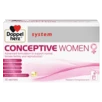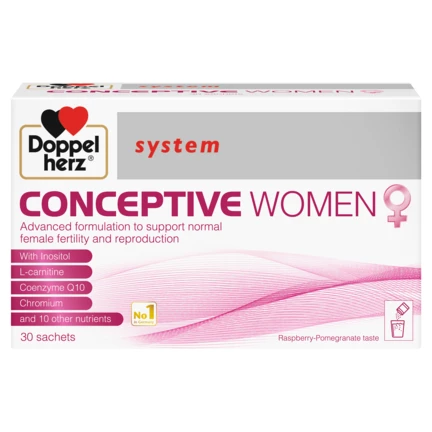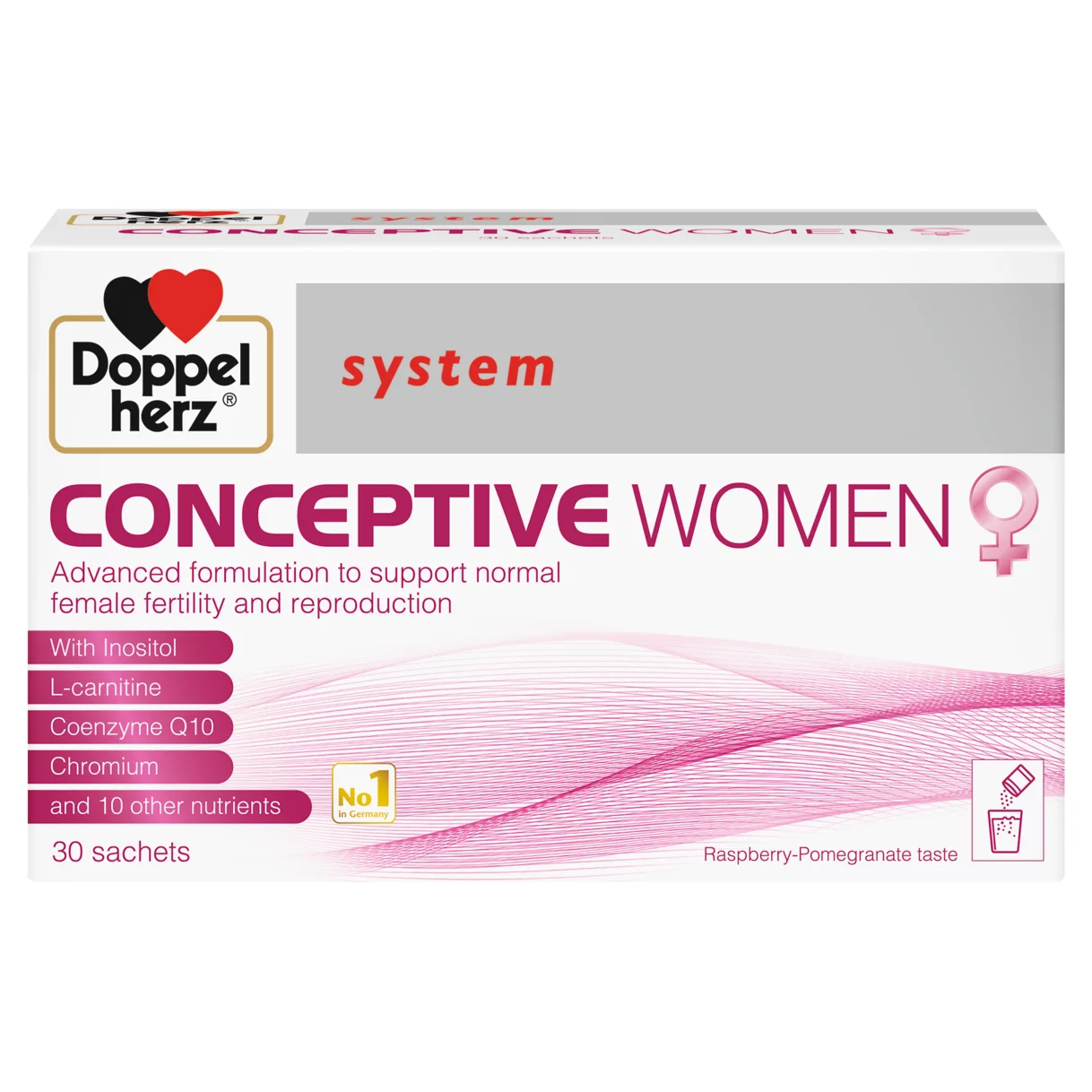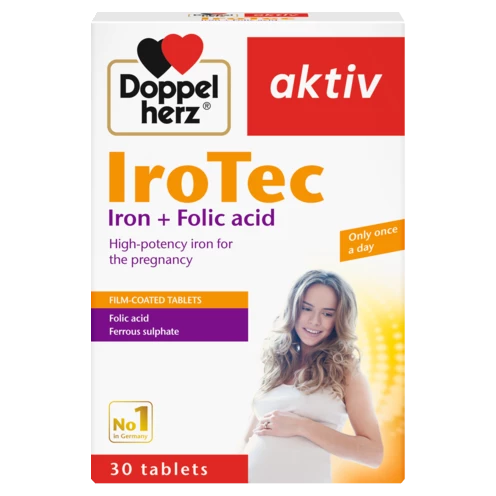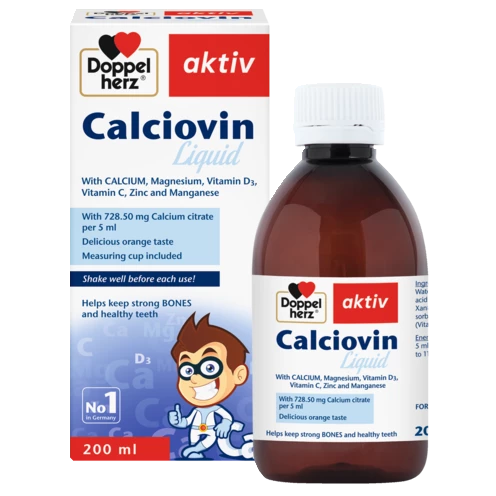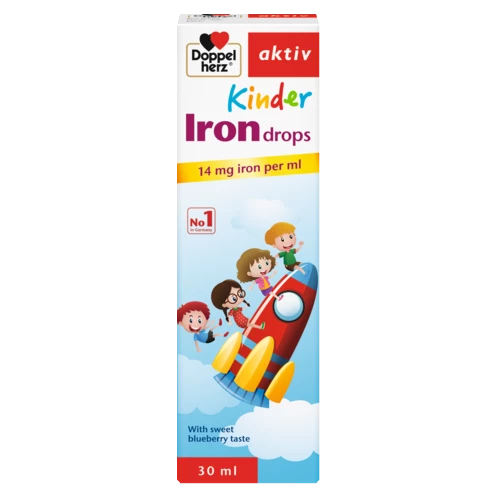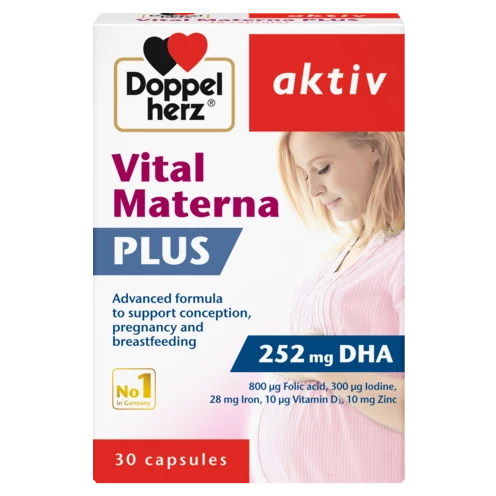CONCEPTIVE WOMEN
- Advanced formulation
- Supporting normal female fertility and reproduction
- Food supplement
One couple in the reproductive age out of seven encounters fertility problems of unknown reason.
Female hypofertility can affect women who are otherwise in good health and whose ovarian reserve is theoretically sufficient. Various factors such as hormonal imbalance, ovulatory dysfunction or a lowering in oocyte quality may have a negative impact on fertility.
Lifestyle and diet play an important role in maintaining normal fertility. lndeed, nutritional studies have shown that ovulatory function was associated with the diet, whereby a better regularity of the ovulatory cycle is observed when the diet is healthier and richer in micronutrients.
In addition, the oocyte maturation process and the function of the reproductive system depend on a good supply with specific micronutrients such as:
- lnositol: it is a key-compound which intake has proven efficient in improving oocyte quality, especially in the frame of assisted reproduction.
- L-carnitine: it is essential for the function of mitochondria and for the production of cellular energy from fats. In addition, its antioxidant effect is important to preserve oocyte quality during their maturation.
- Magnesium: this mineral acts as a muscle relaxant and promotes mental relaxation. lt is important to reduce stress in case of fertility issues because it can have an additional negative influence on reproductive function.
- Folic acid is important to ensure the correct progress of precocious steps of embryonic development. lt is recommended to women trying for a baby to take a folic acid supplement even before conception in order to reduce the risk of certain fetal malformations. This protective effect is backed up when vitamins B6 and B12 are taken together with folic acid.
- Coenzyme Q10 has a positive effect on follicular fluid and on oocyte quality. This effect is reinforced by antioxidants like vitamins C and E as well as by selenium, which is needed by specialized enzymes responsible for the neutralization of free radicals.
- lodine: trace element that is essential for the normal function of the thyroid. Preliminary studies have shown that iodine deficiency was often associated with a decrease in fertility.
- Chromium: when take with biotin, this trace element has a beneficial effect on glycemic control through insulin, which contributes to reduce hormonal imbalances associated with infertility.
- Vitamin D3 is not only essential for calcium metabolism, is it also involved in the normal function of the female reproductive system.
In our product Doppelherz Conceptive Women, we gathered essential nutrients that were shown to improve oocyte maturation and quality, as well as function of the female reproductive system.
We recommend intake of Conceptive Women during at least three consecutive months, in order to allow the organism to pull out all the benefits provided by the nutrients and to reach a new physiological balance favorable to fertilization.
Dissolve the content of 1 sachet per day in a glass of water (150 ml). Drink before or during a meal.
Do not exceed the stated recommended daily dosage! Food supplements should not ne used as a substitute for a varied diet. Keep the product out of the reach of children.
Biotin can interfere with a few laboratory tests and falsify their results. This is especially true for children and patients with renal failure. In case of upcoming medical tests, please inform your doctor that you are taking a product containing biotin. He will take this into account when interpreting the results.
Not suitable for children, adolescents, pregnant women and breastfeeding women.
Do not store above 25 °C.
2000 mg lnositol, 220 mg Vitamin C, 200 mg L-carnitine, 200 mg Magnesium, 30 mg Coenzyme QlO, 24 mg a-TE Vitamin E, 4 mg Vitamin B6, 600 µg Folie acid, 300 µg Biotin, 150 µg lodine, 100 µg Chromium, 50 µg Selenium, 20 µg Vitamin D3, 12 µg Vitamin B12.
